'We can't do it anymore': What extras told the 'Blinded By The Light' director about the National Front scenes
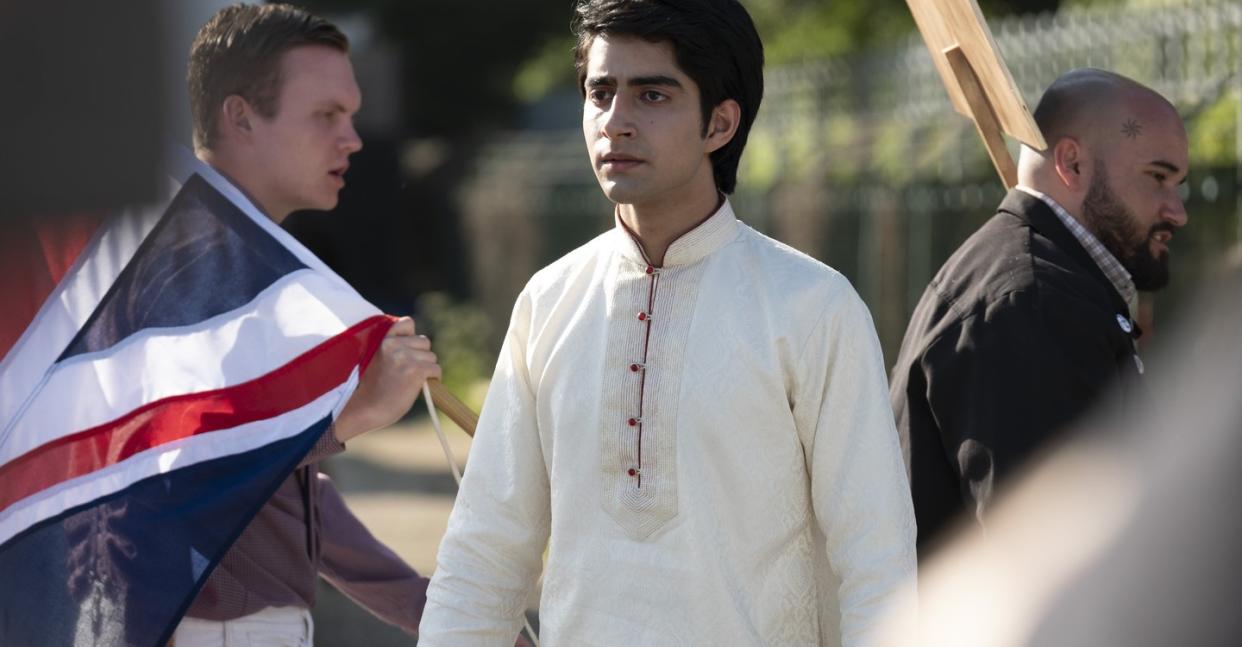
Blinded by the Light might seem like a light-hearted coming-of-age story soundtracked by Bruce Springsteen, but underneath there’s a darker undertone that at times makes for an uncomfortable watch.
The film centres on Javed (Viveik Kalra), a British-Pakinstani, Muslim teen living in Luton in 1987. He’s living a sheltered life thanks to his strict father Malik (Kulvinder Ghir), and is constantly on guard because of the colour of his skin.
The threat of skinheads and the far-right National Front seem to follow him at every turn as filmmaker Gurinder Chadha presents the reality of what immigrants and people of colour had to deal with then, and still have to deal with today.
Of course, the actors and extras (background actors) playing these xenophobes and racists are anything but, and Chadha says it made for a rather tough time when shooting these pivotal scenes.
Read more: Chiwetel Ejifor says blockbusters sustain cinema
“When we were shooting the big [NF] march scene, there were a lot of extras in that and people were shocked,” she tells Yahoo Movies UK.
“The trauma of those ugly times hit us all and then after a few takes an Assistant Director called me and said, ‘you better come down there's something wrong with the extras.’
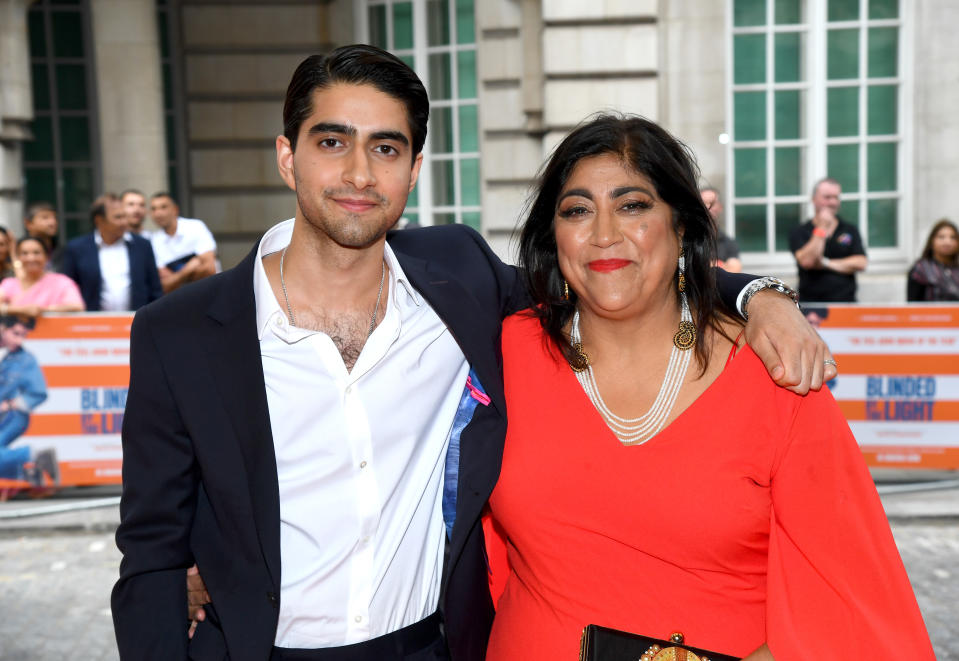
“I thought maybe a fight had broken out so I went down and they basically said ‘We can't do it anymore. We cannot be like this. We don't want to say these words. We can't. We don't like the way everyone was looking at us,’” Chadha recalls. “I had to give them a big pep talk.”
The British director, who is of Indian descent, revealed she even had issues with the crew when having to recreate offensive graffiti.
Read more: Deadpool 2 director says sequel could have lower age rating
“There were places where we needed to paint swastikas and my own art director refused to do it,” Chadha says. “He said, ‘I just can't do it. I'm sorry, I just can't do it.’
“I said, ‘oh bloody hell give me the can, I'll do it.’ So I started painting the swastikas along with Kulvinder [Ghir], who said, 'I'll do it, I lived through all this!’ So me and him were the ones who put ‘NF’ everywhere, whenever we needed it, because the English crew couldn't.”
Read the full interview with Chadha where she discusses how Brexit sprung her into action to make the film, working with Springsteen’s music and what The Boss thought of the movie.
Yahoo Movies UK: Did you realise when you were making Blinded by the Light how resonant it would feel?
Gurinder Chadha: We'd been working on the script for a while but then I went off to make Viceroy's House and when I came back I wondered what movie I should make next. I had always had a problem with Blinded by the Light because I didn't want to repeat myself with Bend It Like Beckham as there were overtones, so I was trying to work out what to do. Then Brexit dropped and what a shock that was. Overnight, it was like someone flipped a switch and all this xenophobia started coming out.
I saw a story on YouTube of a middle-aged man, who thought he could get on a bus and start shouting abuse at an elderly black lady who'd worked at the NHS all her life. I was like “what is going on here?” There's a breakdown in society and this is happening in London, you know? Regardless if you’re Leave or Remain, there is a civil sense, a civil responsibility to who we are as a nation, and this cannot happen.
So the film was a way of showing your civil responsibility?
GC: God has given me a voice, a platform and I have communication skills. And I very strongly felt I needed to do something about what was going on and what I was seeing so I picked up the script. All my anger, and frustration, and sorrow at what I was seeing around me, around Brexit, I just put into the script. Even though it's 1987 it feels very visceral, because I wanted those scenes to be very, very real, and say, “this is what happened 30 years ago, to us and we ain't going back there.”
Read more: Jason Statham says Drew Pearce saved Hobbs & Shaw script
At the same time, my belief is that people are generally good. I don't think everyone who voted for Leave is a racist. I think people are feeling the pinch. People are trying to live honest, decent lives and struggling, just like Bruce says, in all his songs, and I wanted to make a film that was hopeful about that and the fact that life is hard, and people do struggle, and you have to find your “Promised Land” within it.
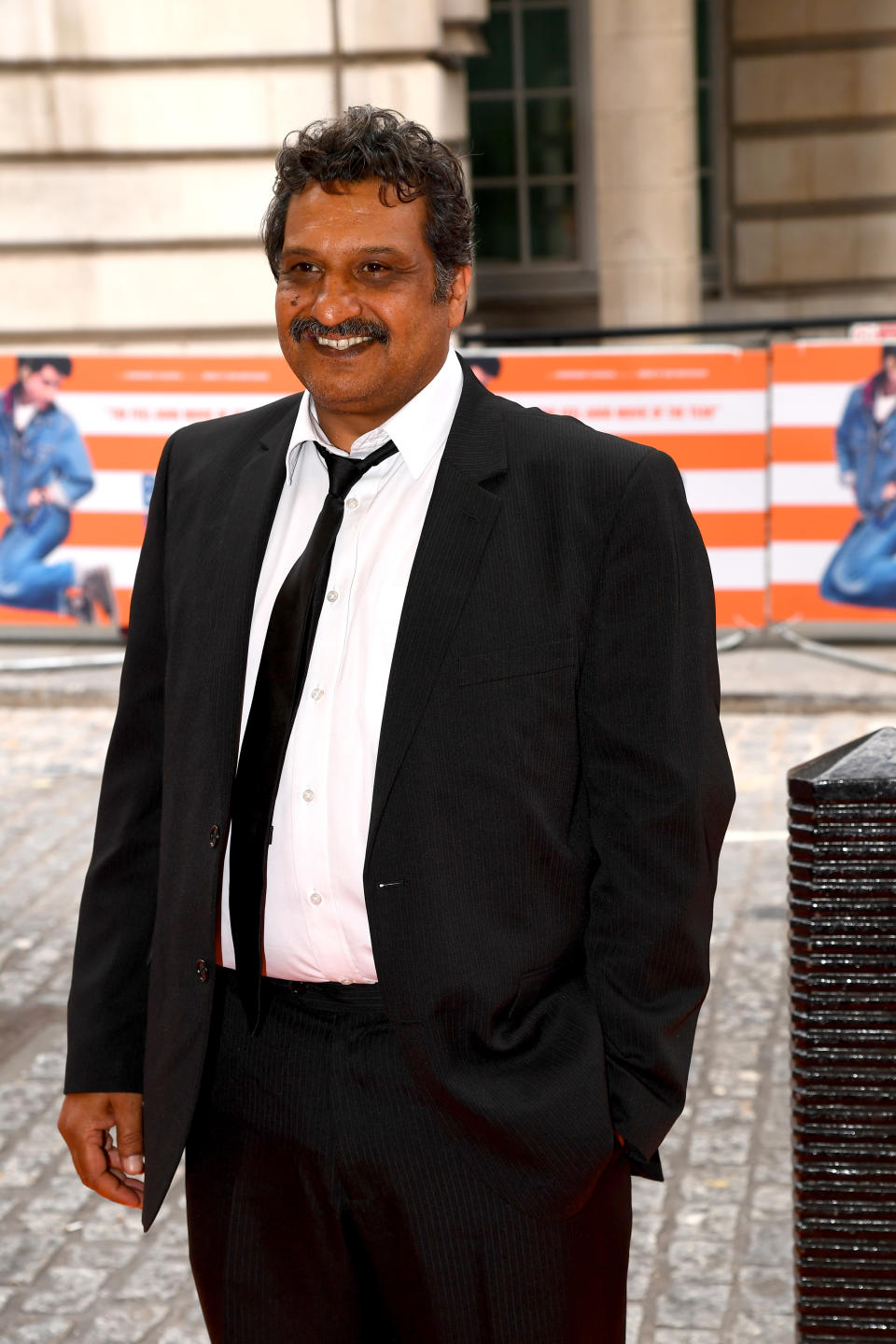
There are some particularly uncomfortable scenes involving skinheads and the National Front. I can imagine it was as tough to film those scenes as to watch
All those actors were very nervous about it. When we were shooting the big [NF] march scene, there were a lot of extras in that and people were shocked. Anyone over 30 who was sat by the monitors, watching this, everyone was just silent, because it felt so real. The trauma of those ugly times hit us all and then after a few takes, an Assistant Director called me and said, “You better come down there's something wrong with the extras.” I thought maybe a fight had broken out so I went down and they basically said we can't do it anymore. We cannot be like this. We don't want to say these words. We can't. We don't like the way everyone was looking at us. I had to give them a big pep talk and explain what you are doing is important for the story. It was hard. I had to put a lot more chanting on top.
The other thing that was interesting was my own art department. There were places where we needed to paint swastikas and my own art director refused to do it. He said, “I just can't do it. I'm sorry, I just can't do it.” And I said, “Oh bloody hell give me the can, I'll do it.” So I started painting the swastikas along with Kulvinder [Ghir], who said, 'I'll do it, I lived through all this! So me and him were the ones who put NF everywhere, whenever we needed it because the English crew couldn't. So that's quite a warming thing on the one hand and shows just how much we've changed as a society.
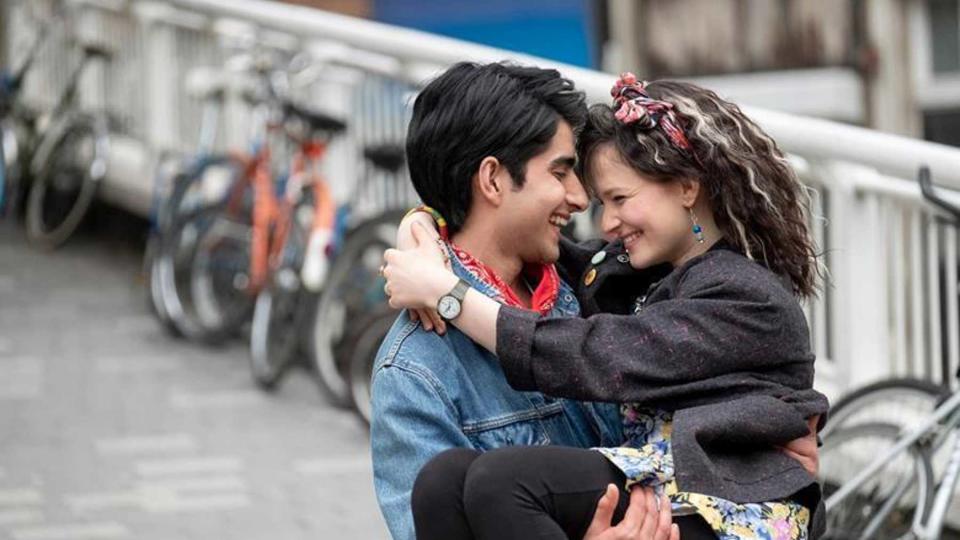
There are musical numbers, and a lot of Bruce’s lyrics woven into the dialogue. Would you call this a musical?
I never wanted to do a full on musical and I never wanted to do a jukebox movie, I wanted to do something in between, because this was a film about words and writing and I had to make those feel very real and cinematic. I needed musical elements in order to convey the meaning of the lyrics but at the same time, I didn't want to do a “happy hands” musical.
The pressure was on me because I'd been given all this man's music to play with all his songs and I needed to make sure I didn't mess that up and lived up to his legacy. At the same time, I had to tell the story of Javed and not get overtaken with Bruce and I knew that there would be people watching who weren't Bruce fans.
They exist?
Haha right? So I had to make the film stand with or without Bruce as well. I was just juxtaposing lots of things but for me, it was easy once I made the decision that Bruce “the rock star” didn't exist and what I had were songs that he had written just for me and for my movie to use. Then I was able to focus on making the words part of the fabric of the film.
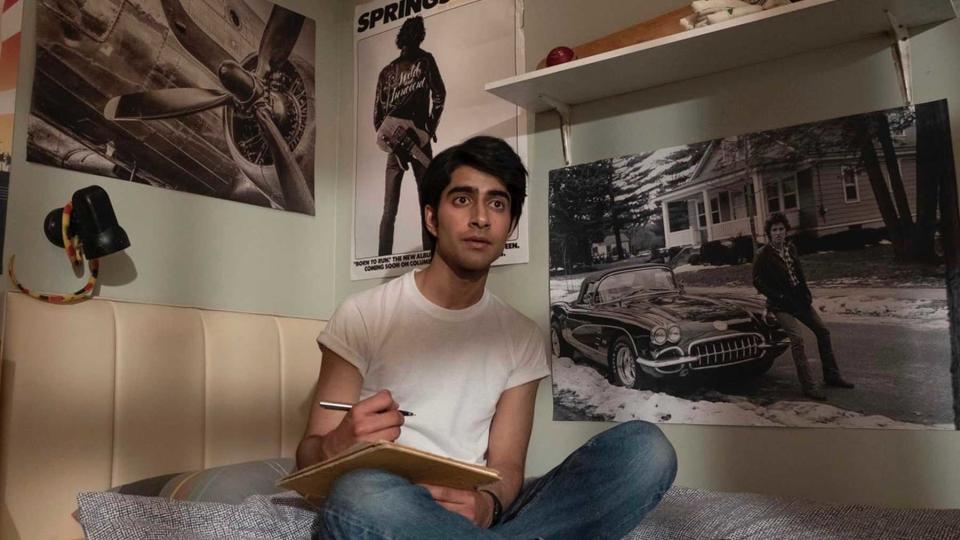
The emotional core of the movie is really the relationship between Javed and his father. Why do you think the father-son dynamic is so particularly visceral on screen?
It's not often told and also, it's rarely told by a woman. I've always maintained that women telling stories about men is very potent because we do it differently to men, we are able to get to different parts. And I think that actually is the big takeaway, the father-son story, rather than anything else. I think it has great emotion because everybody has some kind of shtick with their parents. Everybody as a child needed some kind of approval from their parents that they didn't get, or they weren't understood, or had a dream, but didn't pursue it because they wanted to do what their parents wanted.
That's a very common, universal feeling the father-son thing, and even Bruce, of course, suffered for his dad never saying, "Hey, son, I'm really proud of you." It's so sad and that's coloured so much of his music, and it still does, though he did make peace with it himself.
How was the process of making a movie based on a person’s life with that person?
Sarfraz [Manzoor] and I have been friends for a long time. I had been a massive Bruce fan and I read an interview that he did with him in the paper and I was like, “Oh, there's another Asian who likes Bruce!” That's how we became friends. He said to me he was going to write a memoir, and Bend it Like Beckham had been a big hit by then and he said, as he was writing, that he hoped I might see something in it.

I said it was great and I knew how to turn it into a film but it's different to this. In the memoir, he is protecting his mother and father and protecting his family because he doesn't want to demonise them, so it’s taken all of the drama out. I knew we needed to introduce it and also I said I needed to give him a girlfriend to make him a bit cooler so he's not just a stalking geek of Springsteen!
And you wrote the script together too?
Yes, I gave him a lesson on Robert McKay's three-act structure as Sarfraz was really good at details and the dialogue, you know, but he couldn't do structure because that comes with experience and being a journalist, it's a different thing. So I took over and started working on the structure of it and started blending the lyrics into the script and making it feel like a cinema movie.
I always went back to him when I wanted specific details; he was a tremendous resource throughout the whole thing and also with the filmmaking as my production designer, costume designer, everybody, could talk to him and find out everything right down to what car his dad drove.
Read more: Jason Statham wants Guy Ritchie for Hobbs & Shaw 2
Were there elements of your own childhood experience that you put in it too?
I had to find myself in it as a director. His parents are his but they're also mine. The songs that the dad listens to, that was my idea. That's Mohammed Rafi and those were the songs that my dad listened to, his favourite songs. Then the whole Bhangra “daytimer” scene was very much my world and that was something that was very important to me in 1987. I went to a club called Equinox, in Leicester Square, so that was a big year for me and the Bhangra scene because it made me who I am.
The big question is how did you get The Boss to give you free reign to use his music?
Well Sarfraz had written his memoir, and asked me to turn it into a movie but I said we can't do anything without Bruce's music. Then in 2010, Bruce came to London. He had his premiere of his movie, The Promise, and Sarfraz and I were on the red carpet.
He'd brought a copy of his book with him to give to Bruce. We were both standing there with our cameras but then Bruce spotted him and he came over and he said, “I read your book, it's really beautiful.”
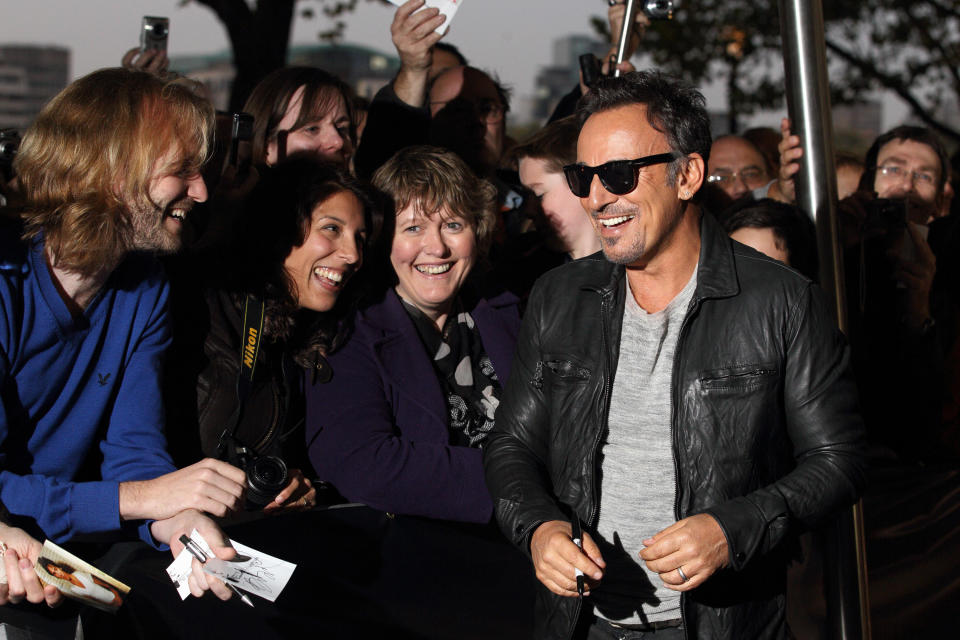
Sarfraz had a sort of meltdown but then I thought, okay, this is it. I got to seize the moment. I've got it. I've got to get a movie deal right now. So I just was like, okay, be cool, be cool, and I just blurted out, “Bruce, I'm Gurinder Chadha, I made Bend It Like Beckham and we want to make a film of this. Will you support us? We need your music.” He looked at us and said, “Sounds good.”
Wow. And what does he think of the film?
Last year, I went to take him the movie. He didn't ask to see it but I needed him to have some say because I had done everything I wanted with his music. I needed to make sure that what I had done with “Born to Run,” what I had done with everything, that he was okay with it. He watched the movie and at the end, he came over to me and he gave me a big kiss and a hug, wrapped his arms around me and he said, “thank you for looking after me so beautifully.”
Blinded by the Light is in cinemas from Friday, 9th August

 Yahoo Movies
Yahoo Movies 
